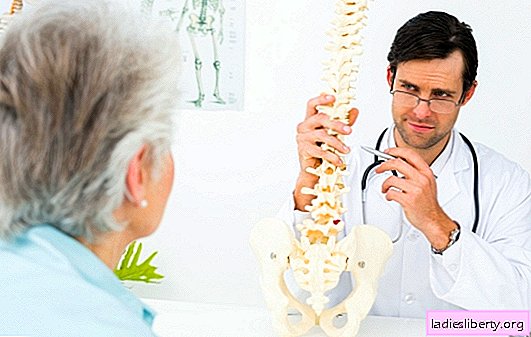
Chronic anxiety and depression are pathological conditions that are characterized by prolonged decreased mood and anxiety. Dutch scientists have found that these mental disorders specifically affect a person’s physical health.
General changes in depression and anxiety
There is a very close relationship between mental and physical condition. Depression can cause various physical consequences. Internal stress leads to increased muscle tone and, thus, pain in the head, neck and back. Uneven heart rate, rapid heartbeat, and chest tightness are also stimulated by perceived constant stress.
If patients suffer from loss of appetite, eat little, then upset stomach easily occurs - nausea, flatulence and constipation.
If a person experiences chronic stress, motivation to move quickly decreases. As a result, many patients do not move as much as necessary. Especially in the elderly, this quickly leads to muscle degradation, which can further increase joint and back pain.
According to psychiatrists, depression affects the whole body. Existing physical complaints take on a different quality. It greatly enhances even a slight unpleasant sensation. Unpleasant moments (dizziness after a sharp rise, headache), which are still easily tolerated, are felt unbearable.
Anxiety affects the immune system
Recently, a clinical trial of 131 patients with anxiety disorders who did not take medication was conducted. The control group consisted of 169 healthy volunteers. Studies have shown altered regulation of stress and the immune system.
The results were transferred to an animal model. The importance of the ASB1 gene for regulating stress and anxiety has also been demonstrated in mice. Researchers concluded that depression and anxiety are associated with changes that affect not only the brain, but also the immune system. This can be an important starting point for the further development of diagnosis, treatment and prevention of mental illness.
The interaction between depressed mood and pain
The most common physical symptom that causes patients to see a doctor is pain. Some suspect that their depressed mood may at least contribute to the onset of symptoms. Most physical complaints are in the foreground of the patient. However, the real cause - depression - is ignored or, at best, considered a side effect.
The basic principle of depression is that it seeks its "material." Negative sensations are perceived in an enlarged form and are often transferred to other objects.
Sometimes depression affects work and relationships, and sometimes the physical body.
Often the true background of physical symptoms is difficult to detect. Possible physical causes should be excluded by the physician before starting treatment.
Does depression affect men differently than women?
Women are 2 times more likely to develop depression than men. However, depressed men have a significantly higher risk of suicide.
Social exclusion is an important risk factor for mental and physical health.
In men, impotence is observed 4 times more often with depression than in women. According to experts, this is due to a sharp decrease in the concentration of sex hormones and dopamine in the brain.
They also suffer from secondary hypertension much more often than women. Men also have a 43% increased risk of developing stroke, myocardial infarction, and other cardiovascular diseases.
Arthritis, scientists explain, is the most common “male” consequence of chronic depression and anxiety. Joint inflammation manifests itself at the age of 35 years.
The reason for these different symptoms is due to hormones that affect the mental balance of women and men in different ways. But crises also vary: although women are more likely to seek fault in themselves, men blame other people.
Timely treatment of depression and anxiety helps prevent possible physical consequences. Therefore, with prolonged mental disorders, you need to consult a doctor.











